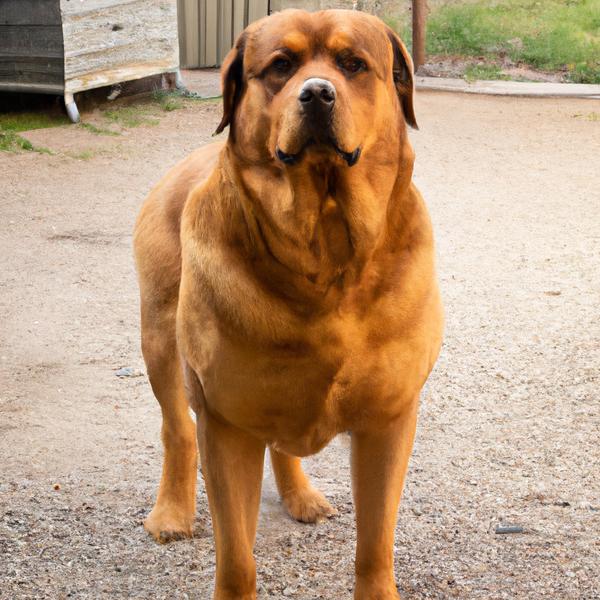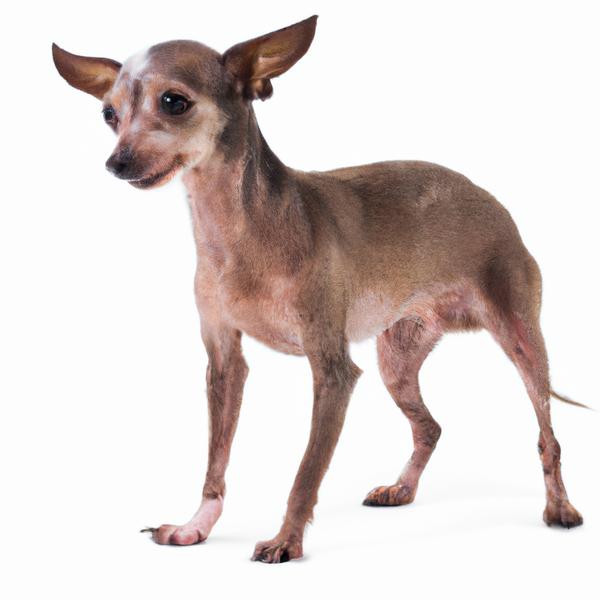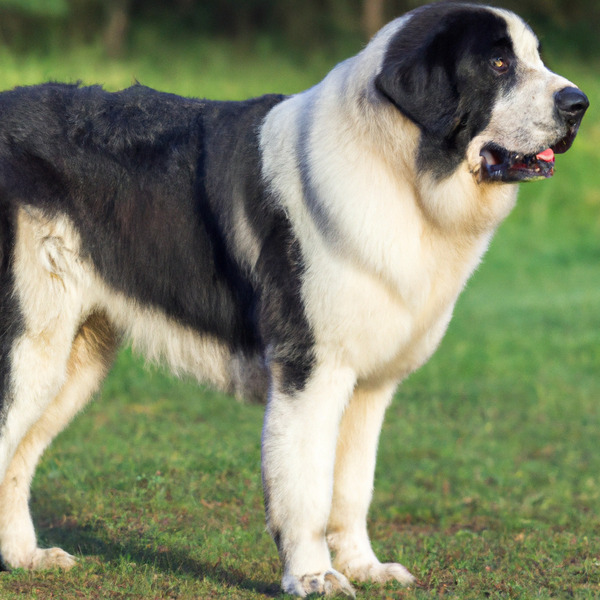Karakachan vs. Rat-A-Pap: Breed Differences and Similarities
Hypoallergenic
Are Karakachans or Rat-A-Paps hypoallergenic, or neither?
Unfortunately, neither Karakachan nor Rat-A-Pap are hypoallergenic, which may not make them the best choice for dog lovers who suffer from pet allergies.
Temperament
What are the personalities of Karakachan and Rat-A-Pap dogs?
Brave
Independent
Proud
Dominant
Intelligent
Vigilant
Loving
Happy
Energetic
Alert
Intelligent
Friendly
Affectionate
Lively
Inquisitive
Shedding Level
Do Karakachans shed more than Rat-A-Paps, or which breed sheds more, Karakachans or Rat-A-Paps?
Karakachans are heavy shedders, but regular brushing can help manage shedding and promote a healthy coat.
Rat-A-Paps are moderate shedders, but regular brushing can reduce shedding and maintain coat health.
Watchdog Ability
Which dog breed makes a better watchdog, the Karakachan or Rat-A-Pap?
Karakachans make excellent watchdogs - they're vocal and protective of their territory.
Rat-A-Paps are decent watchdogs - they'll alert their owner if something seems amiss.
Origin
What is the origin of Karakachan and Rat-A-Pap dog breeds?
Bulgaria
United States
Ancestry
What are the origins of Karakachan and Rat-A-Pap breeds?
Unknown
Papillon, American Rat Terrier
Date of Birth
When were Karakachan and Rat-A-Pap breeds first developed?
Ancient Times
Unknown
Eye Color Possibilites
What are the eye colors of Karakachan and Rat-A-Pap dogs?
Hazel
Brown
Brown
Nose Color Possibilites
What are the natural nose colors of Karakachan and Rat-A-Pap?
Black
Black
Coat Color Possibilites
What are the natural colors of the coat for Karakachan and Rat-A-Pap breeds?
Pied
Black
Brown
Sable
Brindle
White
Black
Brown
Red
Fawn
Coat Length
What is the typical coat length for Karakachan and Rat-A-Pap breeds?
The coat of Karakachan and Rat-A-Pap dogs falls in the medium-length category.
Coat Density
What is the density of the coat of Karakachan and Rat-A-Pap?
Coat Texture
What is the hair texture of Karakachan and Rat-A-Pap?
Straight
Litter Size
What is the usual litter size for Karakachan and Rat-A-Pap?
A Karakachan can have a litter of 12-14 puppies on average. However, it's worth noting that the size of the litters can vary greatly. Factors that can influence litter size include the health of the mother, breeding history, and genetics.
A Rat-A-Pap can have a litter of 5-7 puppies on average. However, it's worth noting that the size of the litters can vary greatly. Factors that can influence litter size include the health of the mother, breeding history, and genetics.
Adaptability
Karakachans have average adaptability to changes in lifestyle and living environments compared to other breeds.
Rat-A-Paps are highly adaptable and versatile, making them excellent companions for families and individuals of all lifestyles.
Health Issues
Between Karakachan and Rat-A-Pap, which breed is more prone to health problems?
Karakachans are susceptible to health issues like all breeds, so it's important to monitor their health and seek veterinary care when needed.
While the Rat-A-Pap breed is generally healthy, occasional vet check-ups are still necessary to address any health concerns.
Major Concerns
What are the major health concerns for Karakachan and Rat-A-Pap breeds?
Usually A Very Healthy Breed
Hip Dysplasia
Minor Concerns
What minor health issues should be kept in mind when owning Karakachan and Rat-A-Pap?
Gastric Dilation Volvulus (GDV) or Bloat
Patellar Luxation
Cataracts
Glaucoma
Von Willebrand's Disease
Hypothyroidism
Dental Problems
Occasional Tests
What occasional tests are recommended for Karakachan and Rat-A-Pap breeds?
X-rays or other radiographic imaging
Blood Panel
Radiographs
Blood Analysis
Blood Sugar and Thyroid Tests
Complete Physical Examination
Energy
How do the energy levels of Karakachans and Rat-A-Paps compare?
Karakachans are suitable for those with a balanced lifestyle as they have an average energy level.
Rat-A-Paps' high energy levels make them unsuitable for a low-key dog, choose accordingly.
Social Needs
Karakachan vs Rat-A-Pap social needs comparison
Karakachan and Rat-A-Pap have very high social needs. These needs include regular mental and physical stimulation, a job or purpose, and companionship. They thrive in environments where they have a lot of interaction with humans and other dogs.
Exercise Needed
Karakachan vs Rat-A-Pap exercise need comparison.
The Karakachan and Rat-A-Pap breeds require a moderate amount of physical activity to maintain a healthy lifestyle. They are ideal for people who have a moderate amount of time to devote to their pets and enjoy regular physical activity themselves. They also make great family pets as they have the energy to keep up with children and the temperament to be great companions.
Sleeping Need
Which of the two sleeps the most/least: Karakachan or Rat-A-Pap?
Karakachans have moderate energy levels and typical sleep patterns of 12-14 hours per day.
Rat-A-Paps sleep less than other breeds but still need adequate sleep for good health.
Tendency to Bark
Do Karakachans or Rat-A-Paps bark more/less frequently?
Karakachan dogs are generally less vocal than other breeds and only bark when necessary, such as to alert their owner or communicate.
Rat-A-Paps bark moderately when necessary and may also bark due to certain triggers like fear, alarm, boredom, greeting, separation anxiety and compulsive barking.
Mouthiness
Mouthiness Comparison: Karakachan vs Rat-A-Pap?
Roaming urge
Karakachan vs Labrador: Running away tendency?
Prey Drive
Karakachan or Rat-A-Pap - which breed has a higher level of prey drive?
Past times
What are some enjoyable activities and ways to keep Karakachan and Rat-A-Pap entertained?
Walk, Play, Run, Off-leash, Chase, Walking, Walks, Running, Gtooming
Playing Ball, Swimming, Visiting Family, Snuggling, Car rides
Activity Level
Which breed has higher energy, Karakachans or Rat-A-Paps?
Karakachans are medium-energy dogs and typically enjoy socializing and playing casual or even sustained games of chase with other dogs. They may also have occasional periods of barking or racing around the house.
Rat-A-Paps are high-energy dogs. They need mental as well as physical exercise. These dogs require a lot of your involvement and without it they can, and will, become problematic dogs.
Tolerance of being left alone
Walks per Week
How many miles should Karakachan or Rat-A-Pap walk each week?
There's really no limit to how far you walk your dog as long as they're comfortable. For Karakachan, it's at least 14 miles / week. Just remember to build distance and stamina gradually over time.
There's really no limit to how far you walk your dog as long as they're comfortable. For Rat-A-Pap, it's at least 10 miles / week. Just remember to build distance and stamina gradually over time.
Activity per Day
Do Karakachans or Rat-A-Paps require more exercise?
Both Karakachan and Rat-A-Pap typically require a minimum of 60 minutes of exercise each day. The exercise can be spread throughout the day and may involve high-energy activities like walking, running, and playing.
Grooming
Which breed is easier to maintain in terms of grooming, Karakachans or Rat-A-Paps?
Karakachans require significant grooming, including regular trims and professional grooming assistance to maintain their coat. They may also require frequent bathing to keep their coat and skin healthy.
The Rat-A-Pap has low grooming needs and is easy to maintain.
Brushing Frequency
What is the recommended brushing frequency for Karakachan and Rat-A-Pap dogs?
Ideally, Karakachan should be brushed at least 2 or 3 times a week (preferably daily) improve shedding.
Rat-A-Pap should be brushed at least once a week. Of course you can give them more frequent brushes if you find that they are still shedding a lot
Brushing Tools
What brushing tools are used for Karakachans and Rat-A-Paps?
Pin Brush
Comb
Deshedder
Nail Clipper
Pin Brush
Slicker Brush
Nail Clipper
Cups
How much food should be given to Karakachan or Rat-A-Pap in cups?
For an average 85-120 pound (39 - 54 kg) Karakachan feed 2.5 cups daily. But, keep in mind, the amount you feed is going to be dependent on the quality of the food you are feeding.
For an average 10-15 pound (5 - 7 kg) Rat-A-Pap feed 1 cups daily. But, keep in mind, the amount you feed is going to be dependent on the quality of the food you are feeding.
Daily Cost
Which breed has a higher daily cost, Karakachan or Rat-A-Pap?
The average cost of a Karakachan is somewhere $1.70 - $2.00 per day.
The average cost of a Rat-A-Pap is somewhere $1.40 - $1.70 per day.
Monthly Cost
Which breed has a higher monthly cost, Karakachan or Rat-A-Pap?
The average per month expenses of a Karakachan is between $48 - $63. This makes an average of $576 - $756 per year. It will be on the higher side when the dog is still small because it will need more frequent visits to the vet, shots.
The average per month expenses of a Rat-A-Pap is between $35 - $42. This makes an average of $420 - $504 per year. It will be on the higher side when the dog is still small because it will need more frequent visits to the vet, shots.
Intelligence
Comparing Intelligence: Karakachans vs Rat-A-Paps
Karakachans are average in obedience intelligence but have a high IQ and may cause trouble if left unsupervised.
Rat-A-Pap is a very intelligent and trainable breed.
Sensitivity Level
How do Karakachan and Rat-A-Pap compare in sensitivity?
Karakachans have average emotions and adapt well to different situations.
This breed is sensitive and requires gentle handling and a calm home environment.
Affection Dependance
Which is the more affectionate dog breed: Karakachan vs Rat-A-Pap?
Apartment Friendly
Which breed is more apartment-friendly: Karakachan or Rat-A-Pap?
Karakachans can do well in apartments with enough exercise and time outside, but a small yard would be ideal.
The Rat-A-Pap is a great apartment dog, thriving with sufficient exercise and time outside as part of their daily routine.
Child Friendly
Do Karakachans or Rat-A-Paps have a friendlier temperament towards children?
Karakachans are good with kids if socialized and trained from a young age.
Rat-A-Paps make excellent family pets for kids due to their gentle, protective nature and calm temperament.
Senior-friendly
Which dog is more suitable as a pet for the elderly - Karakachan or Rat-A-Pap?
Cat Friendly
Do Karakachan or Rat-A-Pap breeds have a better compatibility with cats?
Karakachans are average in their friendliness toward cats and tend to do well with them, especially if raised together.
Rat-A-Paps are very friendly with cats and make great companions for them.
Dog Friendly
Which breed is more sociable with other dogs: Karakachan or Rat-A-Pap?
{Karakachans and Rat-A-Paps are average friendly towards other dogs. If they are raised with other dogs, they are likely to get along with them. And, if they are socialized properly from a young age, they will usually be great with other dogs.
Pet friendly
How do Karakachan or Rat-A-Pap dogs interact with other pets?
Stranger Friendly
Which breed is more friendly with strangers: Karakachan or Rat-A-Pap?
Karakachans are quick to announce strangers and can be standoffish or suspicious.
Rat-A-Paps are highly friendly around strangers.
Playfulness
Which breed is more playful between Karakachan and Rat-A-Pap?
Karakachans have an average level of playfulness, enjoying playtime like most dogs but not excessively so.
Rat-A-Paps are a playful breed that needs daily playtime to be happy.
Trainability
How do the trainability levels of Karakachans and Rat-A-Paps compare?
Karakachans are usually easy to train but require consistency to fully obey commands.
Rat-A-Paps are popular for their ease of training and quick learning ability.
Compare Karakachan with other breeds

Golden Rottie Retriever
Karakachan vs Golden Rottie Retriever

Goldendale
Karakachan vs Goldendale

Pekingese
Karakachan vs Pekingese

Wire Torkie
Karakachan vs Wire Torkie

Puginese
Karakachan vs Puginese

Peke-Italian
Karakachan vs Peke-Italian

Shiba Inu
Karakachan vs Shiba Inu

Bouvier des Flandres
Karakachan vs Bouvier des Flandres

Petite Goldendoodle
Karakachan vs Petite Goldendoodle

Rat-A-Pap
Karakachan vs Rat-A-Pap

Taco Terrier
Karakachan vs Taco Terrier

Chow Shepherd
Karakachan vs Chow Shepherd
